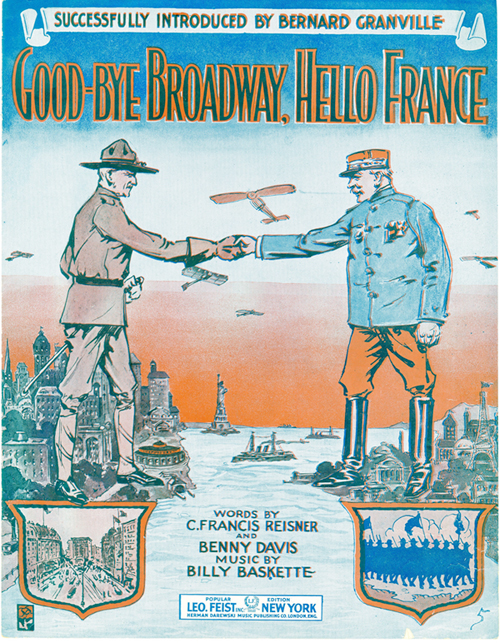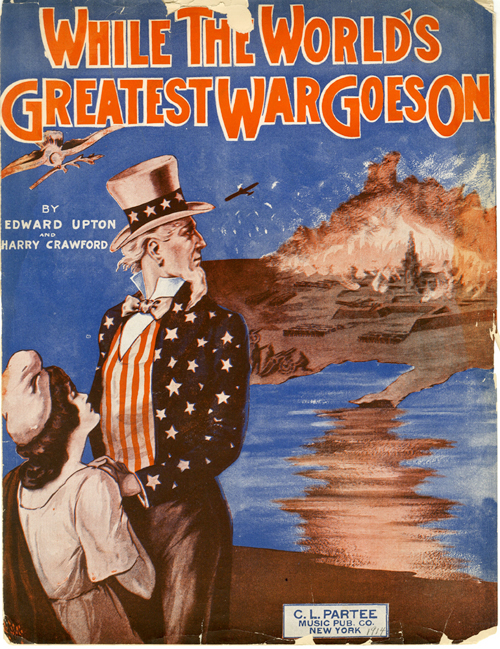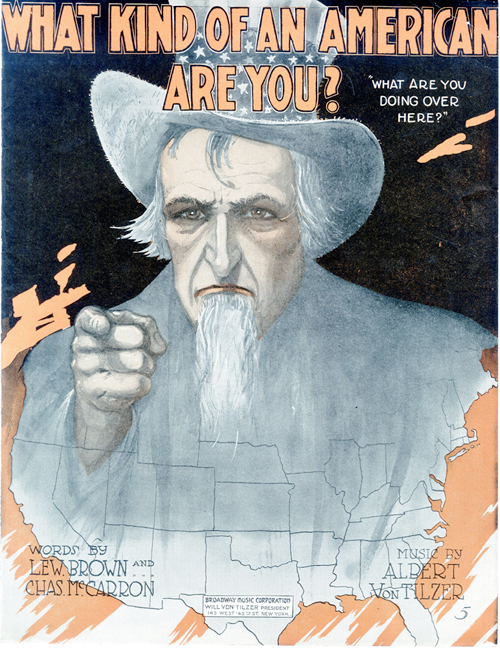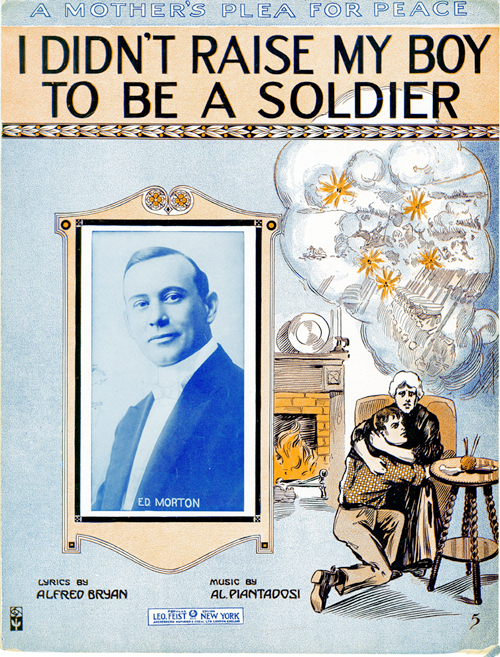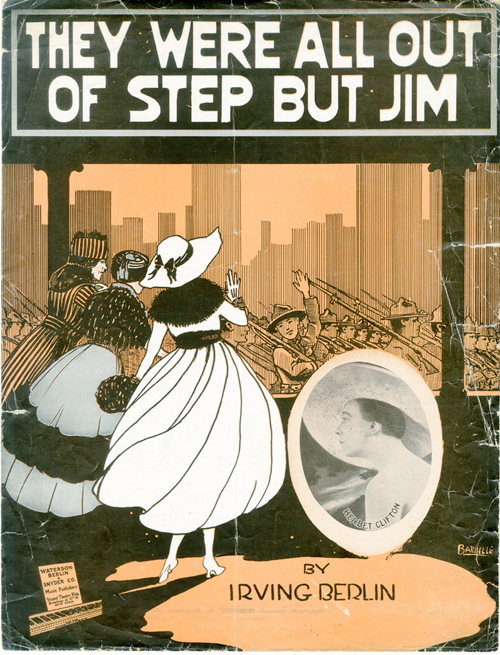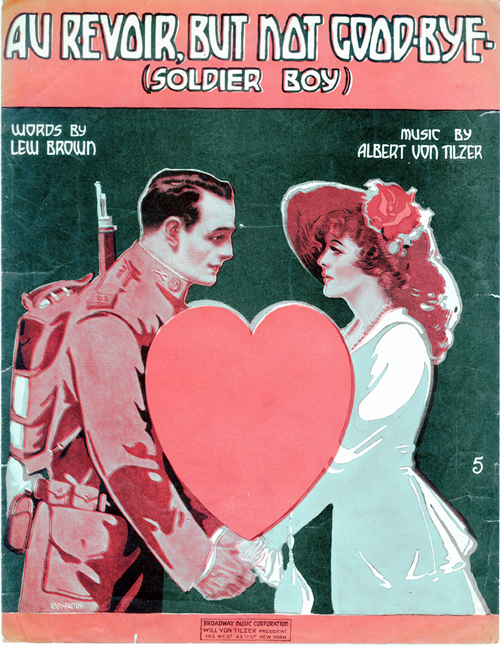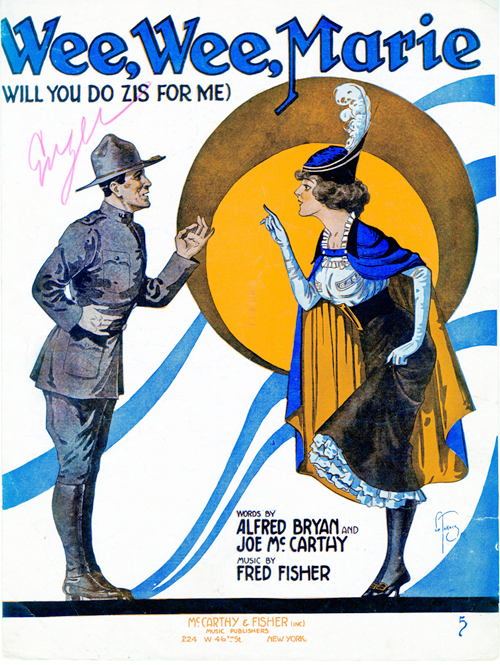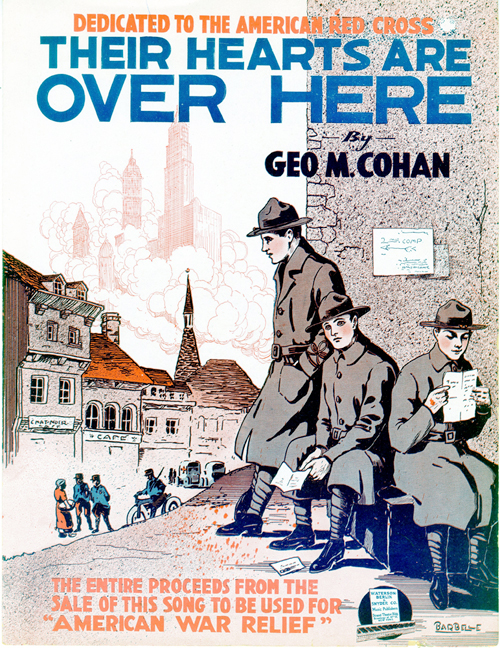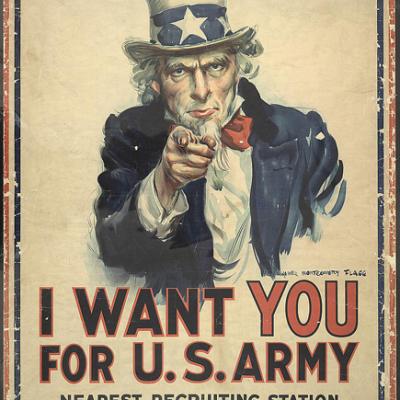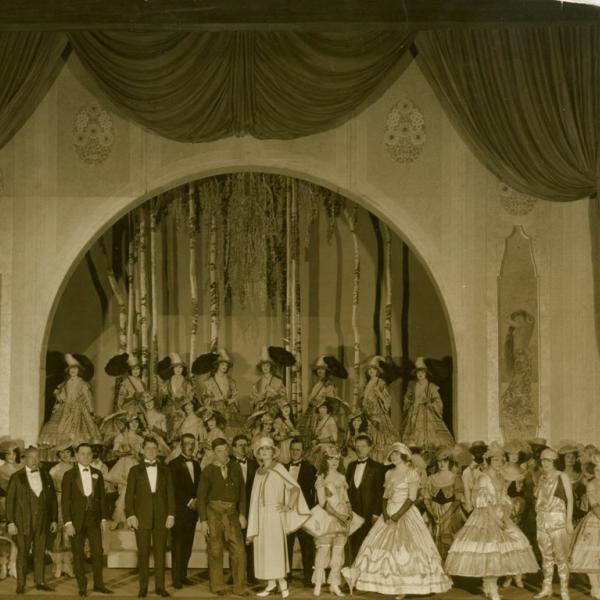The Sounds of Patriotism
Popular Songs of World War I
Monday, June 12, 2017 by
Walking into Posters and Patriotism: Selling World War I in New York, visitors are transported back in time to 100 years ago when the streets of the city were covered with images advocating support for the United States’ efforts in the Great War. It is easy to be impressed by the Museum’s collection of large and colorful posters that dominate the wall space, but take a look at the cases situated around the gallery and another form of propaganda appears: the sounds of the time — sheet music for popular songs.
Between 1914 and 1918, Tin Pan Alley, New York City’s music publishing district, produced hundreds and hundreds of songs inspired by the war in Europe. Stage performers sung these numbers to audiences around the country, and publishing houses printed illustrated sheet music so that those with a piano could play them at home. The United States officially entered World War I on April 6, 1917. Before entering the war, songs were written to support American neutrality, reflecting the popular consensus at the time. Songs like Edward Upton and Harry Crawford’s 1914 “While the world’s greatest war goes on” include the lyrics:
“
We must try to be neutral and calm. Give no cause for offense, just use good common sense, tho’ the carnage and strife still goes on; your favor must never be shown. Remember your nation, your home.
”After entering the war, the protective Uncle Sam on Upton and Crawford’s cover turns into the pointed symbol reminiscent of James Montgomery Flagg’s “I Want You” poster. On Lew Brown and Charles McCarron’s “What kind of an American are you?,” the more aggressive image highlights the 1917 song’s call to action: “The enemy across the sea won’t take our good advice, so now it’s up to every man to make some sacrifice.”
The shift from neutrality to action was also reflected in more personal songs such as those sung from the point of view of a parent. In 1915, Alfred Bryan and Al Piantadosi write of a mother’s fear for her son at war. Their “I didn’t raise my son to be a soldier boy” is dedicated to “Every Mother – Everywhere.”
Yet, Irving Berlin’s “They were all out of step but Jim” which was published just three years later, sings of parental pride felt for an enlisted son. Jim’s mother is “Filled up with delight” to see her son marching in his uniform. (It is interesting to note that this song was made popular by Herbert Clifton, pictured on the cover, a well-known female impersonator on the vaudeville stage.)
Published sheet music didn’t limit themes to patriotism and parental feelings. Just as it is today, love songs were a mainstay of popular music. Songs like Lew Brown and Albert Von Tilzer’s “Au revoir, but not good-bye” showed an American sweetheart singing encouragement to her soldier as he is about to set off for France.
One of the most popular songs in 1918 and 1919 featured an American soldier singing to the lady love he met while fighting in France. “Wee, Wee, Marie” by Alfred Bryan and Joe McCarthy was among the top 20 most popular songs by the end of the war in November 1918.
Perhaps the most enduring song of World War I, is George M. Cohan’s “Over There” written in 1917. (This piece is on display in the Museum’s exhibition.) Wildly popular in its day, the song succeeded in exciting patriotic fervor in young men, encouraging them to enlist. One year later, Cohan penned a kind of sequel to his great hit. With “Their hearts are over here,” Cohan captures the homesickness and yearning of a soldier off to war. Cohan pledged proceeds of the song to the American War Relief.
